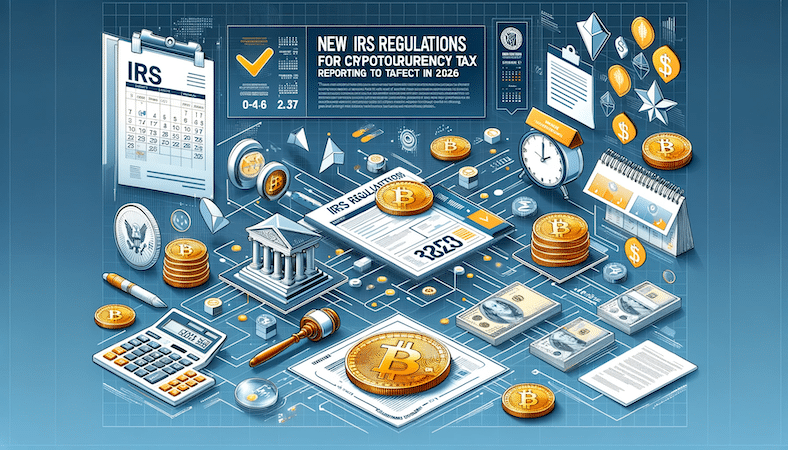
The US Treasury Department and the IRS have finalized new regulations requiring cryptocurrency platforms to report users' transactions to the IRS starting in 2026. This measure stems from the Biden Administration's Infrastructure Investment and Jobs Act, which was passed in 2021.
The new regulations aim to ensure accurate reporting of gains from selling cryptocurrency and other digital assets by both individual investors and the government. Prior to this, there was a lack of standardized reporting methods. Beginning in 2026, for transactions conducted in 2025, cryptocurrency platforms will be required to issue a standard 1099 form, similar to those used by banks and traditional brokerages. This new requirement aims to simplify tax filing for cryptocurrency users.
The IRS emphasizes that these regulations are also intended to combat tax evasion. According to IRS Commissioner Danny Werfel:
"We need to make sure digital assets are not used to hide taxable income, and these final regulations will improve detection of noncompliance in the high-risk space of digital assets."
It's important to note that the new regulations apply only to custodial platforms, such as Coinbase and Binance, which have possession of customer assets. Decentralized platforms that do not hold assets will be exempt from these rules. This exemption was granted after significant lobbying efforts from the crypto industry. The Blockchain Association, a lobbying group for the industry, praised this exclusion, describing it as "a testament to the incredibly powerful voice of our industry and community."
These regulations are part of a broader effort by the IRS to increase transparency and accountability in the cryptocurrency market. By mandating accurate reporting from platforms, the IRS will have improved oversight of the digital asset market, potentially reducing instances of tax evasion by wealthy investors. The introduction of the 1099-DA form is intended to make tax filing more straightforward for cryptocurrency users, providing them with the necessary documentation to comply with tax laws.
While gains from cryptocurrency transactions have always been taxable, the new regulations by the US Treasury and IRS aim to enforce accurate reporting and simplify the tax process for users. This initiative reflects a significant step toward enhancing tax compliance and reducing evasion in the rapidly growing digital asset market.
Crypto Tax Reporting in Other Countries
In other countries, such as nearby Canada, cryptocurrency exchanges adhere to strict reporting requirements to ensure compliance with tax laws. The Canada Revenue Agency (CRA) mandates that exchanges keep detailed records of all transactions, including the dates, amounts, and values in Canadian dollars at the time of each transaction. This information enables individuals to accurately report their crypto income or capital gains.
Similarly, in the European Union (EU), exchanges are also subject to rigorous reporting standards. They must provide detailed transaction records to ensure that users can comply with national tax obligations. Each EU member state has specific regulations, but the general requirement is that exchanges report all crypto transactions, which assists in calculating the appropriate capital gains tax. The EU is working towards more unified regulations to standardize these reporting requirements across member states, aiming for greater transparency and consistency in crypto taxation.


 Crypto Front News
Crypto Front News DogeHome
DogeHome Cointribune
Cointribune CoinPedia News
CoinPedia News CoinoMedia
CoinoMedia CoinEagle.com
CoinEagle.com Cointelegraph
Cointelegraph Cryptopolitan_News
Cryptopolitan_News






















